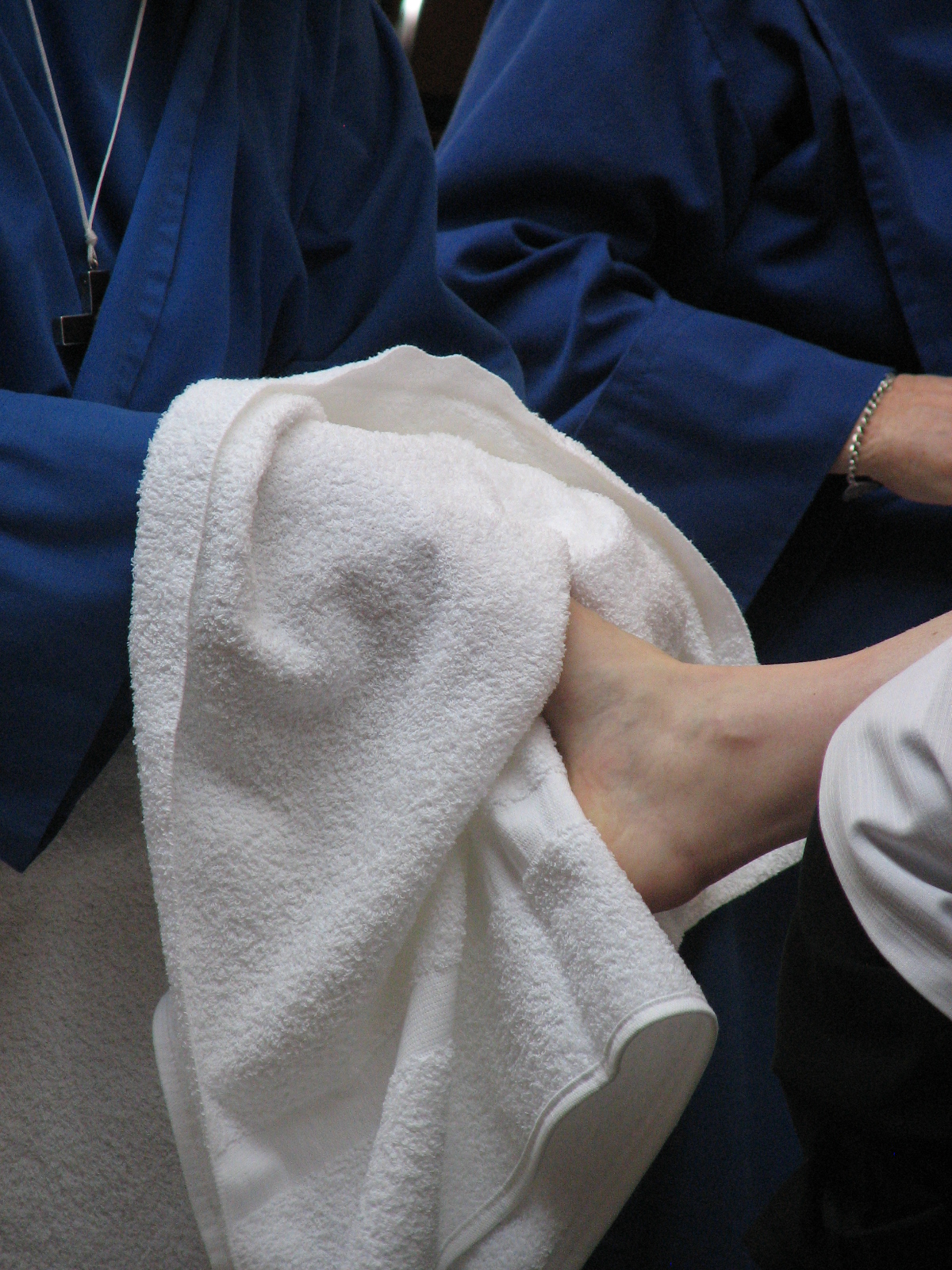
Maundy Thursday is all about relationships – about Jesus’ relationship with the disciples as well as with the political authorities; about our relationship with Jesus; about our relationships with each other. And because it’s about relationships, it’s also about hospitality. Jesus gathers with his disciples in the context of that most ancient feast – the Passover, which celebrates God’s freeing the Hebrew people from their bondage Egypt almost 1500 years before Jesus. He offers the disciples a meal, he washes their feet, and he offers himself – his own body – for the love of the world.
Where does this offering of radical hospitality come from? Its source is the unconditional, total love of God for us and for our world. In fact the name we give to this day – “maundy” Thursday – refers to the new commandment which Jesus gives to the disciples to love one other. The word for commandment in Latin is mandatum, and that got shortened in the medieval English period to maundy. So Maundy Thursday is a kind of nickname for this day – a good reminder of our Christian call to love unconditionally. And that’s all that Jesus asks of us – that we love one another.
This new commandment gets played out in the two sacramental acts that we observe on this holy night. One is the institution of the Lord’s supper, or what we call the Eucharist – the feast of thanksgiving. The second is the foot-washing, the sacrament of servant ministry. The source of both of these sacraments is in the gospels. Matthew, Mark and Luke all tell of the last supper, and Jesus taking the bread and saying “this is my body” – and the wine and saying “this is my blood, the blood of the new covenant”
The foot-washing appears only in John’s gospel, and John does not include the details of the Last Supper – the bread and wine. Perhaps this difference between John and the other three gospels reflects John’s relationship with Jesus: for John the foot-washing is what remained uppermost in his memory when he wrote his gospel at least 40 years after the events of that night. He had been most impressed with Jesus’ demonstrating the radical hospitality of servant ministry, just as Matthew, Mark and Luke must have been most impressed with Jesus offering his own body and blood as symbolized in the bread and wine.
Jesus takes a towel and washes the disciples’ feet – a task that would normally be done by a servant. He even washes Judas’ feet. Imagine knowing that your worst enemy is in the room with you, and yet you are able to show your love for him as well as those who truly love you like Peter. And then imagine a few hours later discovering that even Peter has denied that he knows you. Through all of this betrayal and denial and grief, Jesus loves the disciples to the end.
After washing the disciples’ feet, Jesus says to them, “Do you know what I have done to you? You call me Teacher and Lord – and you are right, for that is what I am. So if I, your Lord and Teacher, have washed your feet, you also ought to wash one another’s feet.”
What does that mean to us, for us, 20 centuries later? It calls us to radical hospitality, to welcoming the stranger, the person we may not get along with in our own community, the person who simply drives us crazy with demands. In imitation of Jesus we become that person’s servant, offering hospitable space for each person to know they are loved by God.
That is what this night is about – Jesus’ love for us, and Jesus commanding us to have the same love for each other. The bread, the wine, the foot-washing, the hospitality that Jesus shows us through on another – these are all signs of God’s amazing, life-giving love for us. Let us share it with one another.
The Rev. Sr. Constance Joanna Gefvert is Vocations Coordinator for the Sisterhood of St. John the Divine, an Anglican priest in the Diocese of Toronto, and an adjunct faculty member at Wycliffe College, Toronto School of Theology.
